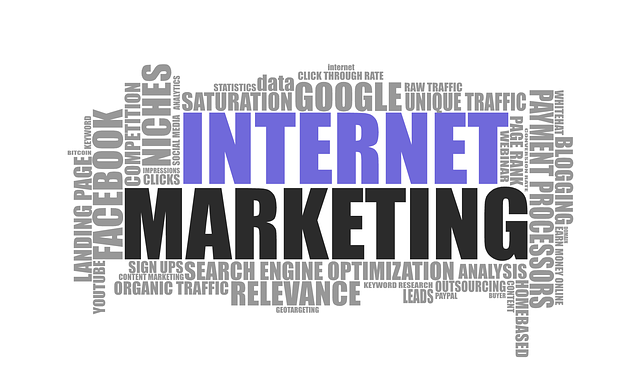Artificial Intelligence (AI) is transforming commercial landscaping with energy-efficient designs and sustainable practices. AI algorithms analyze data on weather, plants, and user preferences to optimize irrigation and lighting, enhancing aesthetics and environmental responsibility. Moreover, AI safety alerts for commercial crew operations predict hazards like slippery surfaces or reduced visibility, ensuring proactive risk mitigation. These intelligent systems adapt to real-time changes, integrate automated maintenance notifications, and promote eco-friendly practices by designing resilient landscapes with water-efficient plants suited to local microclimates, ultimately reducing costs and contributing to sustainability.
“Revolutionize commercial landscaping with AI: A journey towards energy-efficient, safe, and intelligent outdoor spaces. This article explores the transformative power of artificial intelligence in shaping urban landscapes. We delve into its role in optimizing design, enhancing sustainability through smart algorithms, and improving worker safety with AI alerts. From real-time monitoring to adaptive landscapes, discover how AI is reshaping commercial crew operations, ensuring efficiency, and fostering a safer environment. Uncover the future of landscaping, where technology and nature harmonize.”
- The Role of AI in Commercial Landscaping
- – Exploring the potential of AI in optimizing landscape design for commercial spaces
- – Enhancing energy efficiency and sustainability through intelligent algorithms
The Role of AI in Commercial Landscaping

The integration of Artificial Intelligence (AI) in commercial landscaping is transforming the way we design and manage outdoor spaces. AI offers a range of benefits, from enhancing efficiency to promoting sustainability. In terms of energy-efficient landscape design, AI algorithms can analyze vast amounts of data, including weather patterns, plant species, and user preferences, to optimize irrigation systems and lighting. This ensures that landscapes are not only visually appealing but also environmentally responsible.
Moreover, AI safety alerts for commercial crew operations have become invaluable tools in enhancing workplace security. These intelligent systems can predict potential hazards, such as slippery surfaces or areas with reduced visibility, allowing landscaping teams to take proactive measures. By leveraging AI, commercial landscaping professionals can create safer and more vibrant outdoor environments while reducing operational risks.
– Exploring the potential of AI in optimizing landscape design for commercial spaces

The integration of Artificial Intelligence (AI) in commercial landscaping offers a promising avenue to revolutionize energy-efficient design. By leveraging AI algorithms, architects and landscape designers can now create intelligent outdoor spaces that adapt to real-time data, ensuring optimal performance and sustainability. This technology enables precise analysis of various factors, from climate patterns and sunlight exposure to plant health and water usage, thus facilitating informed decisions for efficient landscaping.
AI safety alerts for commercial crew operations are also a significant advantage. Through predictive analytics, AI systems can identify potential hazards or inefficiencies within the landscape, such as overwatering or pest infestations, allowing for prompt actions. This proactive approach to maintenance not only enhances the overall health of the landscape but also contributes to long-term cost savings and environmental sustainability, making AI an indispensable tool for shaping future commercial spaces.
– Enhancing energy efficiency and sustainability through intelligent algorithms

In the realm of commercial landscaping, Artificial Intelligence (AI) is revolutionizing energy-efficient landscape design. By leveraging intelligent algorithms, AI systems can analyze vast datasets to optimize plant selection, irrigation schedules, and sunlight exposure, thereby significantly reducing energy consumption. These algorithms adapt to real-time environmental changes, ensuring landscapes remain vibrant while minimizing waste. For instance, AI safety alerts for commercial crew operations can be integrated into landscaping plans, providing automated notifications on maintenance needs, potential hazards, and optimal resource allocation, further enhancing sustainability.
Moreover, AI enhances sustainability by predicting climate patterns and planning for adaptable, resilient landscapes. These algorithms can identify water-efficient plants suitable for specific microclimates, ensuring efficient use of resources. By integrating AI into commercial landscaping, businesses not only reduce operational costs but also contribute to a greener environment, setting a benchmark for sustainable practices in the industry.
Artificial intelligence is transforming commercial landscaping, offering a path towards more sustainable and energy-efficient outdoor spaces. By leveraging AI, designers can optimize layouts, reduce resource consumption, and foster healthier environments. As these intelligent systems evolve, they will play a pivotal role in creating thriving urban landscapes, ensuring not only aesthetic appeal but also ecological balance. Additionally, AI safety alerts for commercial crew operations will further enhance efficiency and worker protection in managed spaces.
